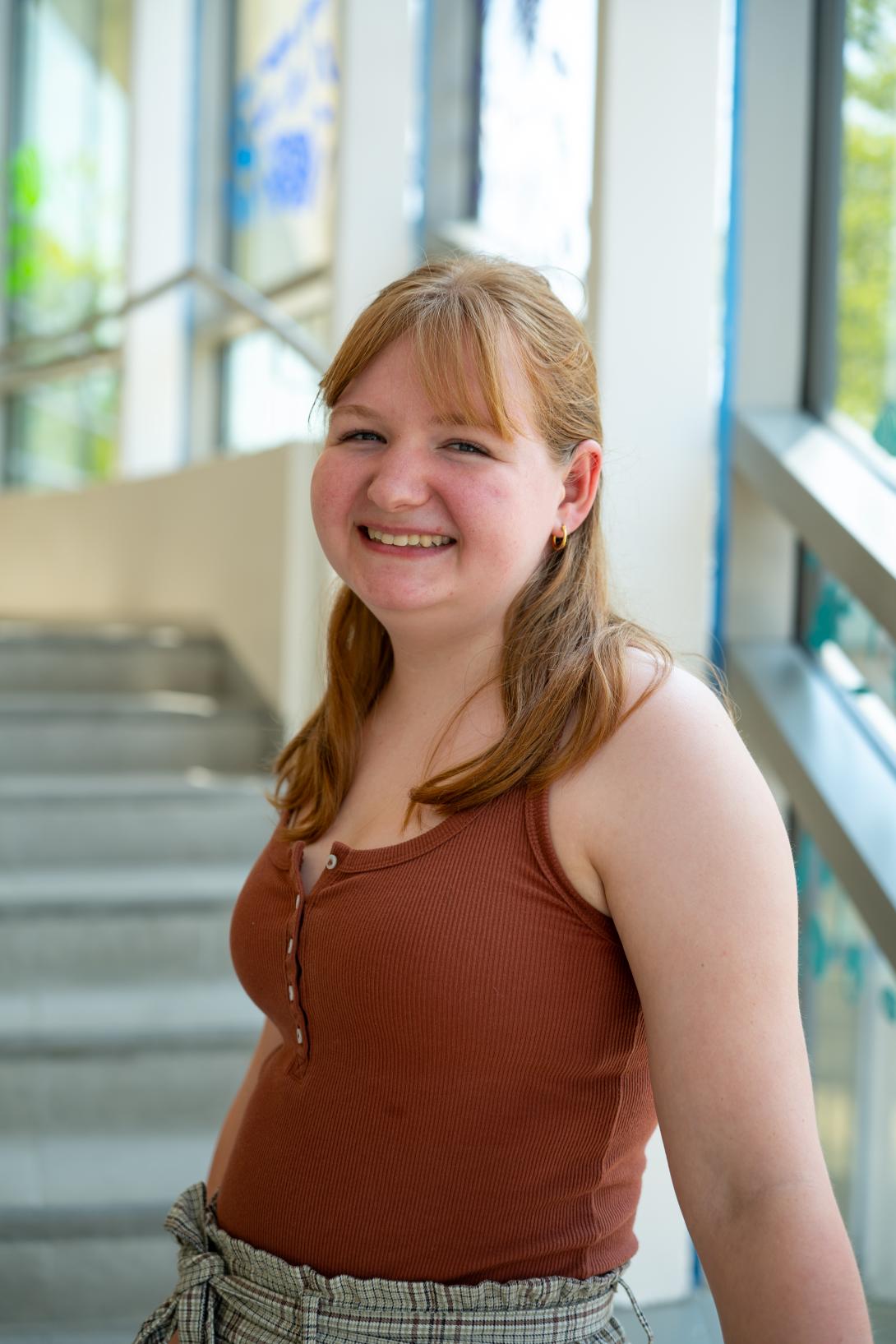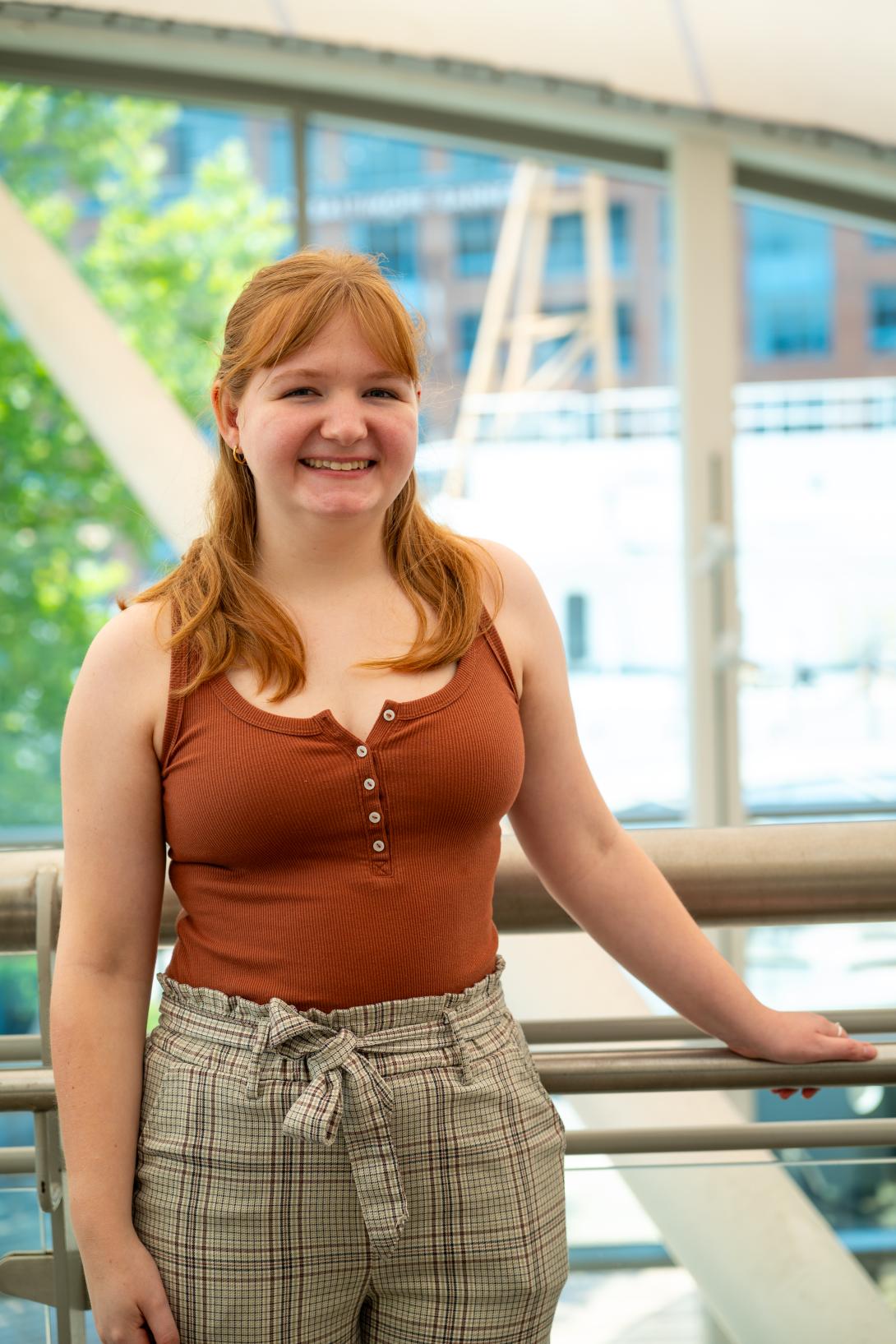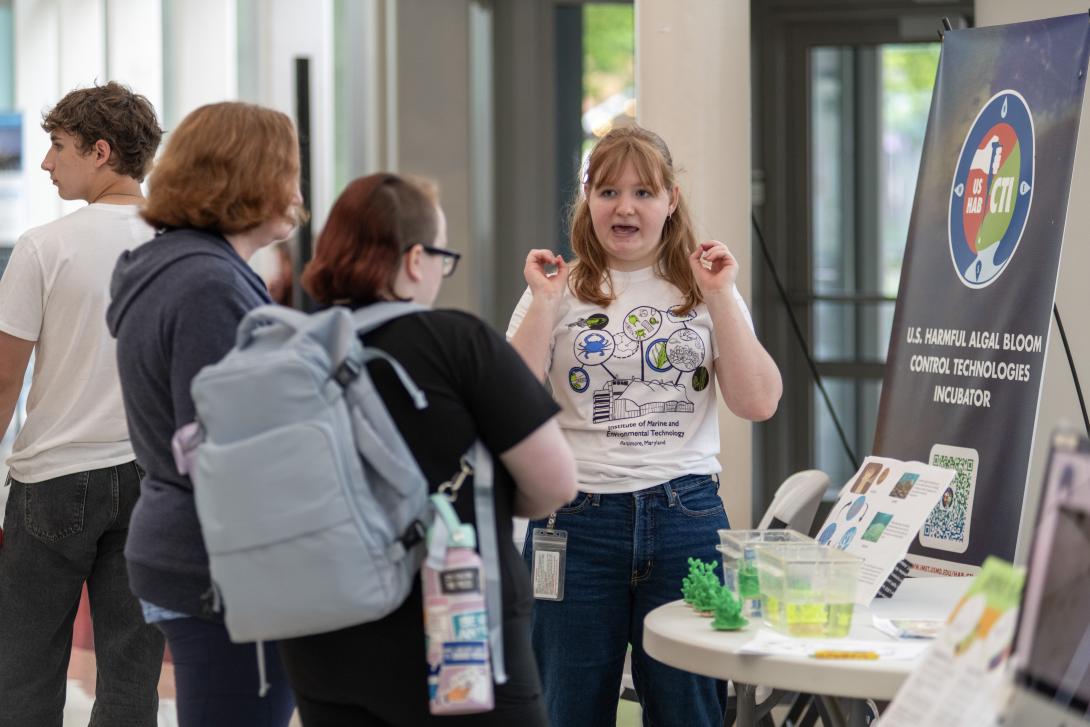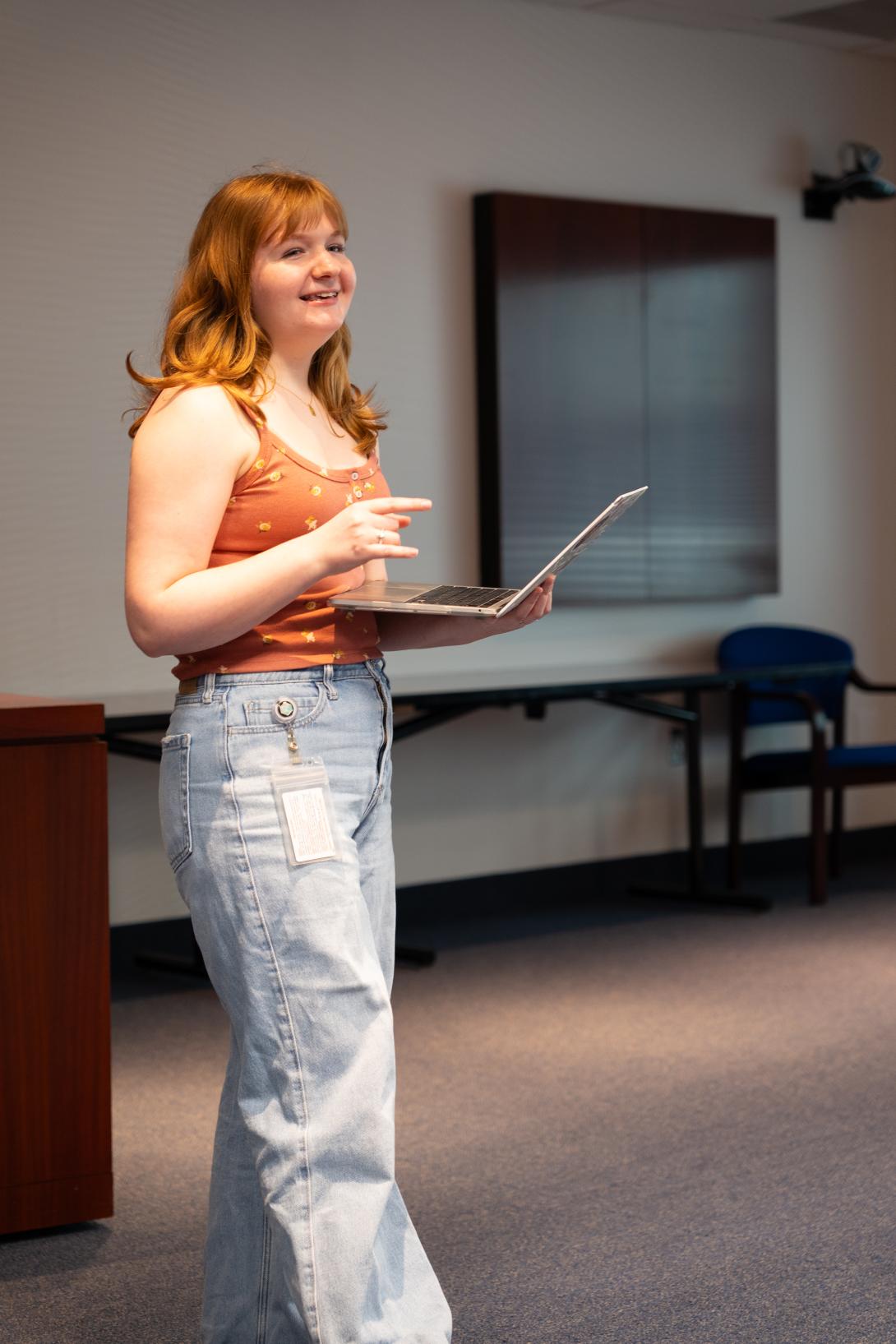IMET GSA President Q&A with Emily Jolly

Emily Jolly is a graduate student studying photosynthesis and toxin production in symbiotic dinoflagellates in the lab of Dr. Allen Place. Emily is IMET's newly elected Graduate Student Association (GSA) president. Emily has big ideas for the GSA, such as expanding available resources and increasing camaraderie among graduate students
Congratulations on becoming the new GSA president! A presidential role is a big one that requires leadership and emotional intelligence; what leadership qualities have you seen here at IMET that have really inspired you?
The PIs are very supportive here and I am always inspired by fellow students that are willing to help out or pick up someone’s work if needed.

What is your field of study, and why does it matter?
I study Symbiodiniaceae, a group of dinoflagellates that form symbiotic relationships with corals, jellyfish, and mollusks. Through photosynthesis, Symbiodiniaceae can provide their hosts with nutrients, supporting reef ecosystems that are both ecologically and economically important. Climate change is disrupting this relationship— supposedly by targeting photosynthetic machinery— in a process known as "bleaching." I focus on their photosynthetic responses to different environmental stressors. Still, because Symbiodiniacae are dinoflagellates known to produce toxins famously associated with harmful algal blooms, I'm interested to see if these symbiotic dinoflagellates make toxins and for what reason. This research will allow us to learn more about species-specific tolerances to stress and which symbionts are more resistant to bleaching. In addition, these studies may also reveal some details about how symbiosis between these two partners is initiated, maintained, and/or disrupted.

What can the Baltimore community do to help solve this problem?
Corals and coral reefs are often associated with tropical areas far away from Baltimore's inner harbor, but the ocean is constantly circulating and connecting these marine systems. Baltimore residents can protect coral reefs by avoiding using sunscreens that contain oxybenzone, a chemical lethal to corals and anemones. Additionally, people can support local fishermen rather than buying imported fish caught by large industrial nets that often cause damage to reef systems. If Baltimore residents ever choose to travel to see a coral reef up close, they should research the company and tour guides they decide to book with so that tourism is managed ethically in protected areas. But really, the easiest thing and most important thing for anyone to do is decrease their carbon footprint.

What do you envision for the Graduate Student Association during your term?
Overall, I have two main goals for GSA this year. The first is to make resources more easily accessible to graduate students at IMET. At the end of her term, I worked a lot with Ally Kido, the previous GSA president, to make a database of funding opportunities and conferences that students can apply to for support. I would really love to expand that by connecting students to alums so that we can get a better perspective of life after IMET. My second goal is to unify the graduate student body. Each individual lab can feel isolated, and graduate students can split off into cliques. I would really like to facilitate the mingling of more students by offering social activities like happy hour or volunteer/outreach events.
Nature or nurture? Were you born a scientist, or did something in your life lead you in the direction of marine science?
Well, when I was really young, I always wanted to be a writer. In high school, I started to become more interested in science and I had a choice between biology and physics. In college, I switched away from medical sciences and had a growing interest in environmental science.
We are so glad the wind brought Emily here to IMET!